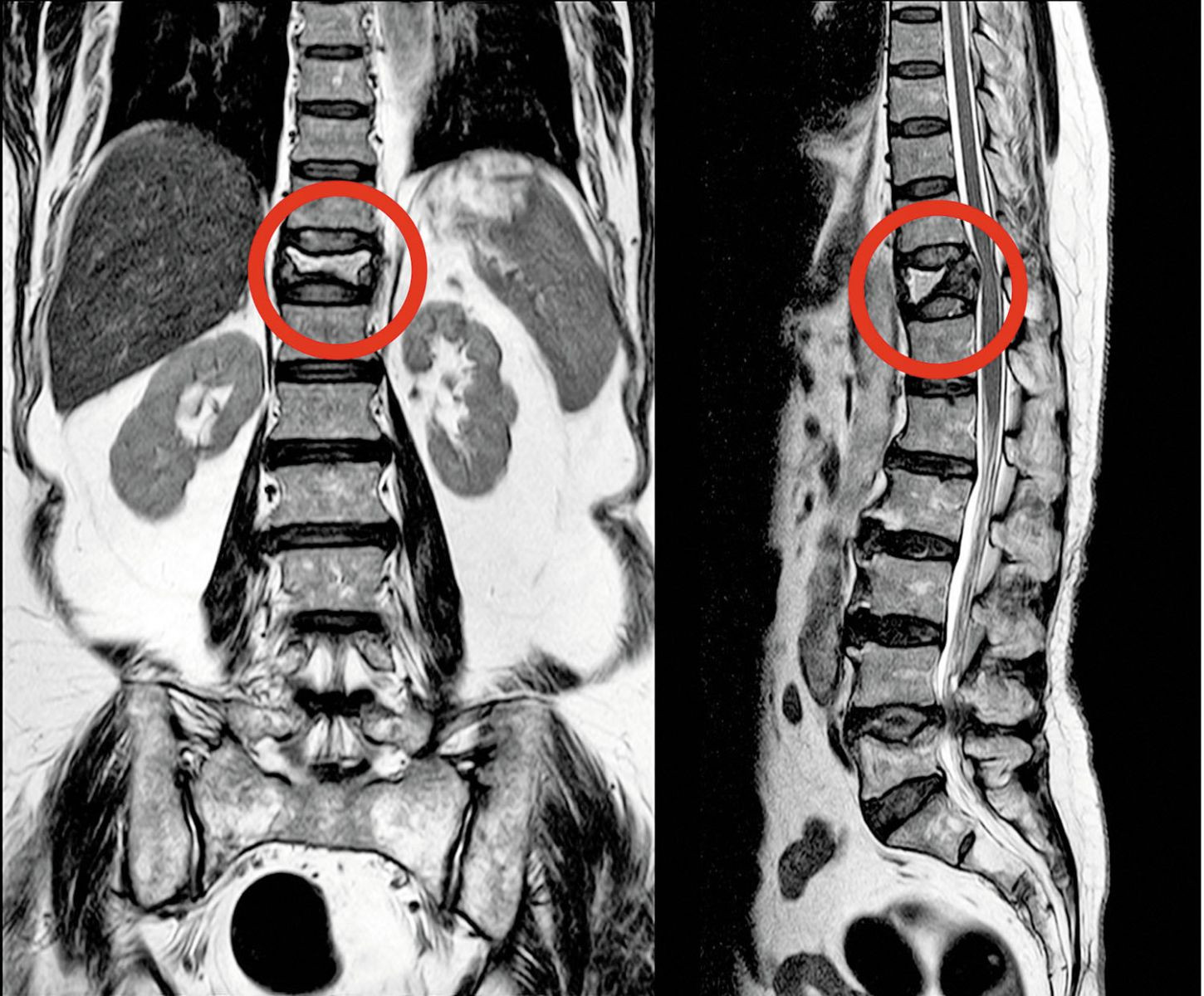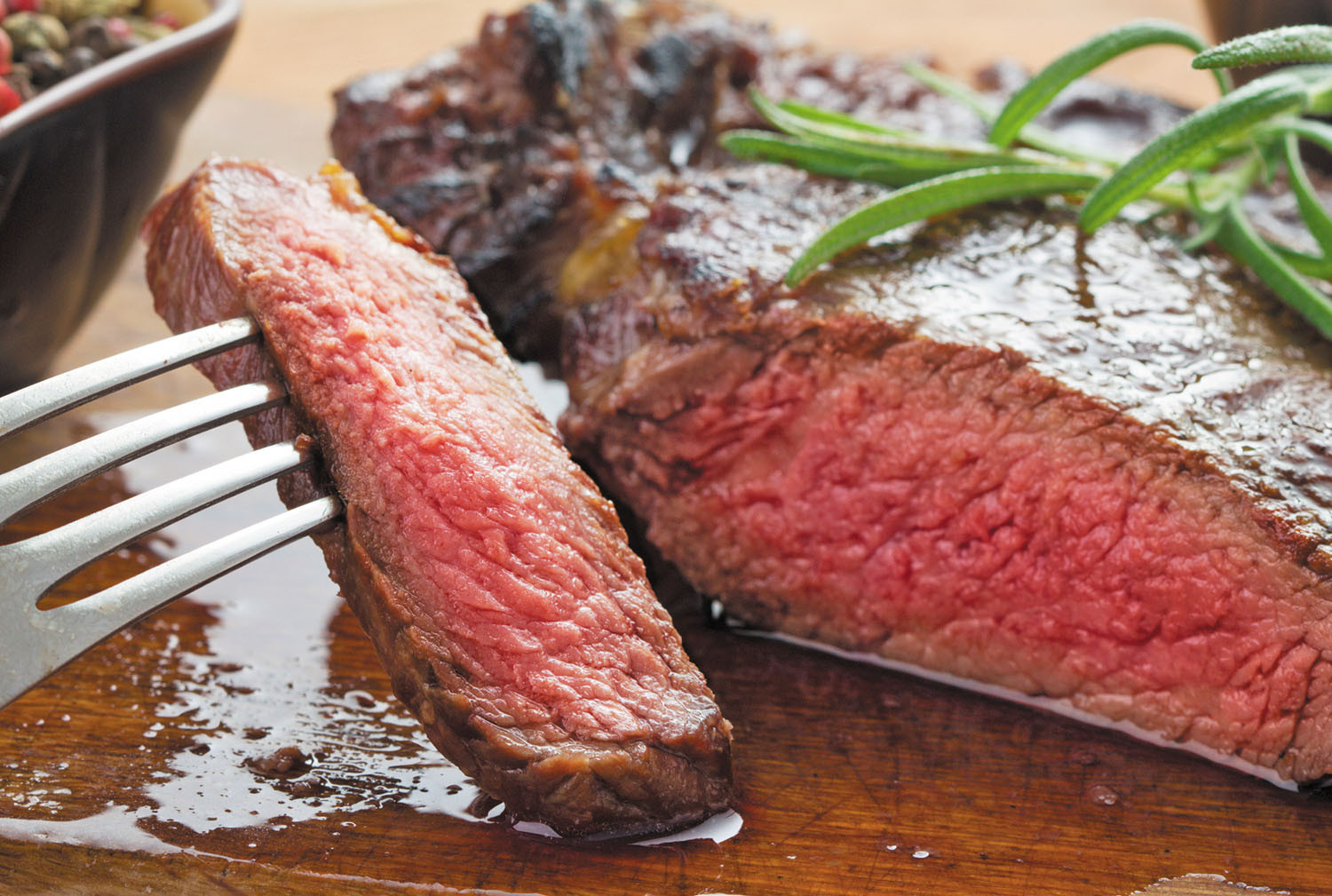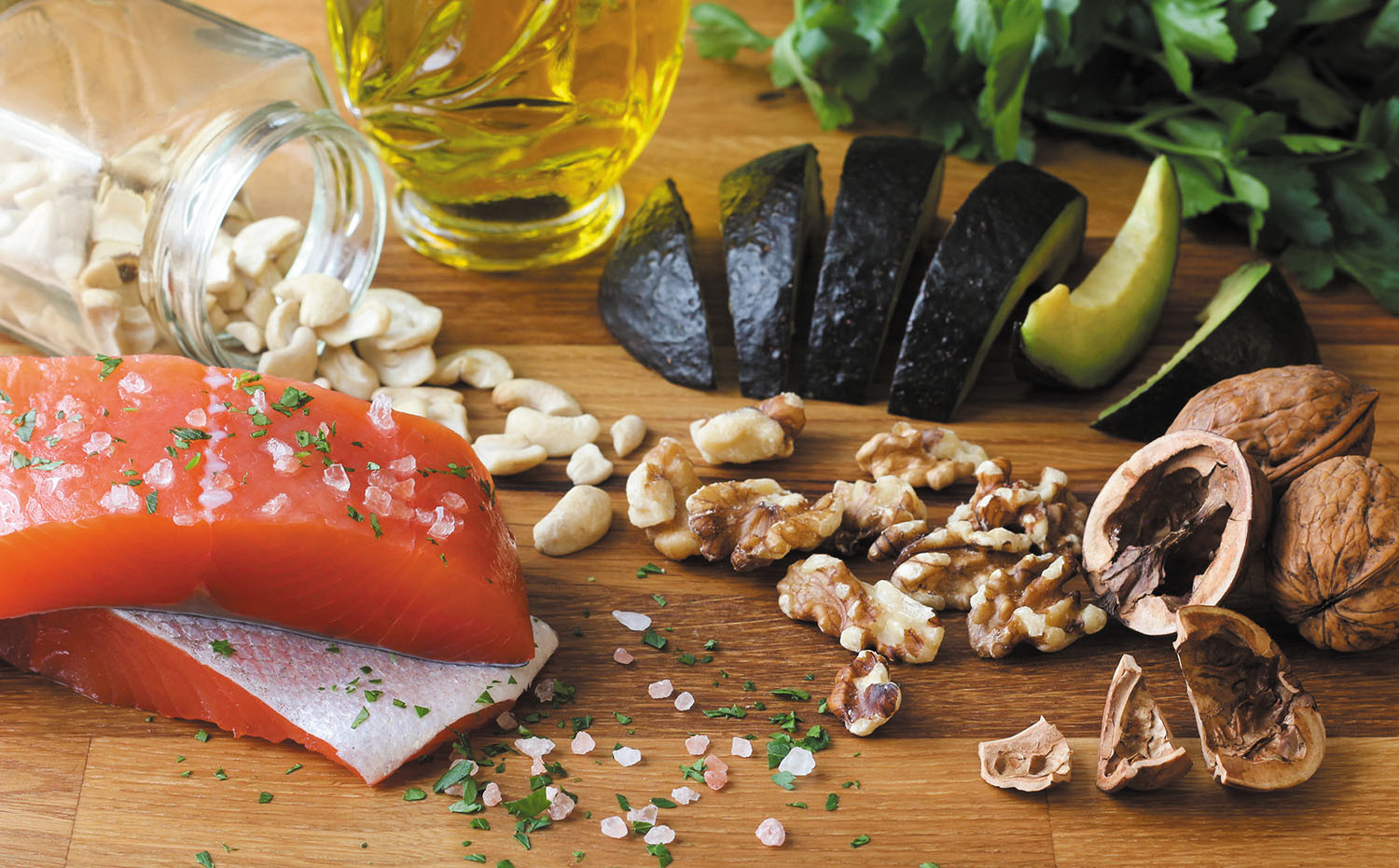
5 timeless habits for better health

What are the symptoms of prostate cancer?

Is your breakfast cereal healthy?

When pain signals an emergency: Symptoms you should never ignore

Does exercise give you energy?

Acupuncture for pain relief: How it works and what to expect

How to avoid jet lag: Tips for staying alert when you travel

Biofeedback therapy: How it works and how it can help relieve pain

Best vitamins and minerals for energy

Should you take probiotics with antibiotics?
Staying Healthy Archive
Articles
Don't give up on grains
Whole grains contain fiber and nutrients that can help your health.
It's a low-carb world, and many people are pushing grains off their plate in an effort to control their waistline. But they may be doing their body a disservice. Whole grains have some unique properties that make them a valuable addition to the diet. Not only do they contain a host of nutrients, such as iron, B vitamins, copper, zinc, and magnesium, but studies have linked diets rich in whole grains to a lower risk of colon cancer, which is a growing health threat for many younger Americans.
"The main benefit of whole cereal grains, such as wheat, oats, and barley, is in the fiber," says Teresa Fung, adjunct professor in the Department of Nutrition at the Harvard T.H. Chan School of Public Health. "Cereal fiber is different from vegetable fiber or bean fiber."
Beware of potential health risk related to supplements
Research we're watching
Do you know someone who is taking supplements in hopes of boosting their energy levels, gaining muscle, or losing weight? You may want to warn them about potential dangers. A study published online June 5, 2019, by the Journal of Adolescent Health found that products sold to boost energy, promote weight loss, or build muscle were linked to three times the number of severe medical events compared with vitamins. Researchers came to this conclusion after looking for supplement-related adverse events reported between January 2004 and April 2015 to the FDA. In total, they identified 977 cases of harm linked to supplements. Of those, 40% were severe medical events that resulted in death or hospitalization. While energy, weight loss, and muscle-building supplements appeared to be the riskiest, products sold to promote sexual function or to cleanse the colon were problematic as well. The FDA has found that some of these supplements contain dangerous substances or contaminants, such as pesticides, harmful chemicals, or heavy metals. Past studies have connected weight-loss and muscle-building supplements with serious, sometimes fatal, health problems, including liver damage, stroke, and testicular cancer.
Image: ronstik | Getty Images
Is your lunch lacking?
Research we're watching
If the contents of your lunch bag are looking less than wholesome, you're not alone. A survey sponsored by the American Heart Association found that more than half of Americans who eat lunch at work reported that their midday meal often falls short when it comes to good nutrition. In addition, 91% of those surveyed said they would be interested in making healthier lunch choices. So, what's making people choose less healthful lunch options? Top reasons included the convenience of unhealthy foods (cited by 60% of respondents), taste (54%), and a lack of healthy food options (cited by 43%). If you're looking to improve your own lunch quality, the American Heart Association offers some tips on its website at www.heart.org/healthyforlife.
Image: portishead1/Getty Images
5 tools to help you stand up on your own
Protect your independence with gadgets for your home or car.
The simple act of standing up from a sitting position is one of the most important for independence, especially in the bathroom. But the ability to get up sometimes goes south as we age. It could be because of a medical problem or just too much sitting. "When you sit and bend your knee, the gluteal muscles in the buttocks and the quadriceps in the thighs are lengthened. If you sit all the time, the muscles become overstretched and weak," says Clare Safran-Norton, clinical supervisor of rehabilitation services at Harvard-affiliated Brigham and Women's Hospital.
Exercise can help
If you're able to exercise, try strengthening the "glutes" and quadriceps regularly with exercises you can do around the house.
Are there any new vaccines?
Ask the doctor
Q. Fancy new technologies keep appearing in medicine. Are there any innovative new kinds of vaccines?
A. There sure are. Vaccines are one of the greatest inventions in history. The smallpox vaccine campaign conducted by the World Health Organization eradicated the disease from the face of the earth by 1980. How much good did that do? From 1900 to 1980, 300 million people died from smallpox. Since 1980, not one death.
A broken back without the fall
Don't ignore back pain, height loss, or osteoporosis. They could be signs of a compression fracture.
You didn't fall, and you didn't do anything strenuous. So it may come as a surprise when the bad back pain you've been experiencing turns out to be one or more broken bones in your back. "A common story is that someone bends down to put something in the dishwasher or steps off a curb a little hard and puts additional load on their spine. The weakened bone is not adequate to take that load, and it collapses," says Dr. Julia Charles, a rheumatologist and bone cell researcher at Harvard-affiliated Brigham and Women's Hospital.
What weakens the spine?
Your spine contains about 30 bones called vertebrae, stacked on top of each other like a roll of quarters. Each vertebra consists of an external bone surface (like plaster), and an inside filled with a honeycomb of support rods called trabeculae.
Harvard researchers: Red meat consumption tied to early death
News briefs
We already know that a diet rich in red meat is linked to many health problems, such as heart disease, type 2 diabetes, and colorectal cancer. Now a Harvard-led study published online June 12, 2019, by BMJ suggests that boosting your red meat intake increases your risk for early death. Scientists analyzed questionnaire answers about health and diet provided by more than 81,000 healthy men and women between 1986 and 2010. In particular, researchers looked at whether changes in red meat consumption during an eight-year period of the study affected the risk of death eight years later. The findings: An increase of just half a serving of processed red meat per day was associated with a 13% higher risk for dying young from any cause; an additional half-serving of unprocessed red meat increased the risk by 9%. On the flip side, decreasing total red meat consumption and increasing the consumption of nuts, fish, poultry without skin, dairy, eggs, whole grains, or vegetables was tied to a lower risk of death. The takeaway: Try to curb your appetite for red and processed meats like bacon, salami, and hot dogs. Eat more poultry, fish, or plant-based proteins (like beans, lentils, nuts, and seeds), along with the other components of a healthy diet.
Image: © Pavlo_K/Getty Images
Can these three steps save 100 million lives?
News briefs
A study published online June 10, 2019, by Circulation suggests that scaling up three healthy lifestyle changes could increase the life spans of almost 100 million people around the world. Researchers — led by a team from the Harvard T.H. Chan School of Public Health — evaluated global data on death rates, blood pressure levels, the use of blood pressure medications, sodium and trans fat intake, country, age, and gender. They estimated that a worldwide push to lower blood pressure, reduce salt intake by 30%, and eliminate the consumption of trans fat could delay more than 94 million deaths from cardiovascular disease in the next 25 years. More than half of those deaths would be among adults ages 70 or older, and more than half of all deaths would be among men. Regions that would see the most benefit are outside the United States — in East Asia, South Asia, the Pacific, and parts of Africa. But we can all benefit from the three lifestyle changes. Trans fat has already been banned in foods in the United States. But if your blood pressure isn't under control, it's time to talk to your doctor about treatment and to reduce sodium intake to well under 2 grams per day.
Image: © CatLane/Getty Images
Cyber security risk sparks implanted device recalls
News briefs
As we reported last year, advances in digital health monitoring — such as implantable sensors to detect irregular heartbeats — are changing the way health is managed. The gadgets are programmed wirelessly and can transmit information to your doctor's office or to other gadgets, such as an external blood sugar monitor that tells an implanted pump how much insulin to release. But it's unclear if the devices are safe from hackers who could illegally access your information, steal your identity, and even make an implanted device malfunction. Now the FDA is warning that certain insulin pumps — the Medtronic MiniMed 508 series and MiniMed Paradigm series pumps — are at risk of being hacked. Medtronic recalled the pumps in June, estimating that at least 4,000 people are at risk. The FDA says Medtronic will provide alternative pumps.
Talk to your doctor to get the process started or if you're concerned that your pump's settings have been changed. In March, the U.S. Department of Homeland Security issued similar warnings about 750,000 Medtronic implantable cardioverter-defibrillators. Medtronic did not recall them but is working on a software update to improve security.
How to adopt a Mediterranean diet
This approach to eating has numerous health benefits. What's the best way to follow it?
For years, the Mediterranean diet has been touted for its heart- and cancer-fighting abilities, and countless studies have backed up its reputation as one of the world's healthiest eating patterns.
So what is the best way to begin eating the Mediterranean way? Approach it as a lifestyle and not a structured, rules-oriented diet, suggests Dr. Qi Sun, associate professor in the Department of Nutrition at Harvard's T.H. Chan School of Public Health.

5 timeless habits for better health

What are the symptoms of prostate cancer?

Is your breakfast cereal healthy?

When pain signals an emergency: Symptoms you should never ignore

Does exercise give you energy?

Acupuncture for pain relief: How it works and what to expect

How to avoid jet lag: Tips for staying alert when you travel

Biofeedback therapy: How it works and how it can help relieve pain

Best vitamins and minerals for energy

Should you take probiotics with antibiotics?
Free Healthbeat Signup
Get the latest in health news delivered to your inbox!
Sign Up











